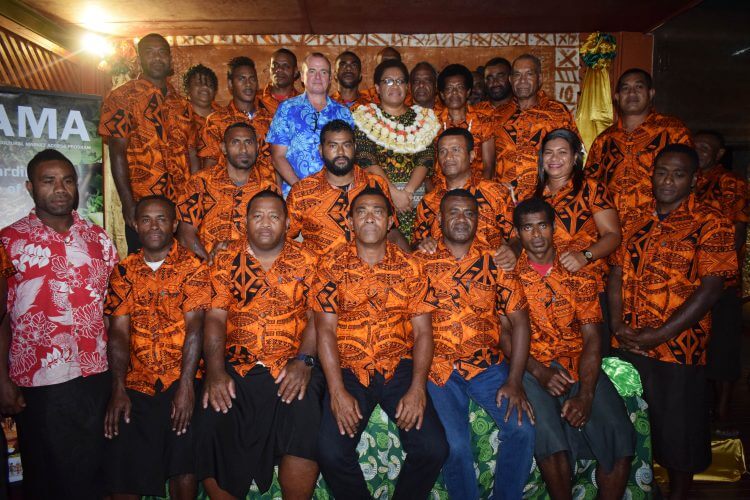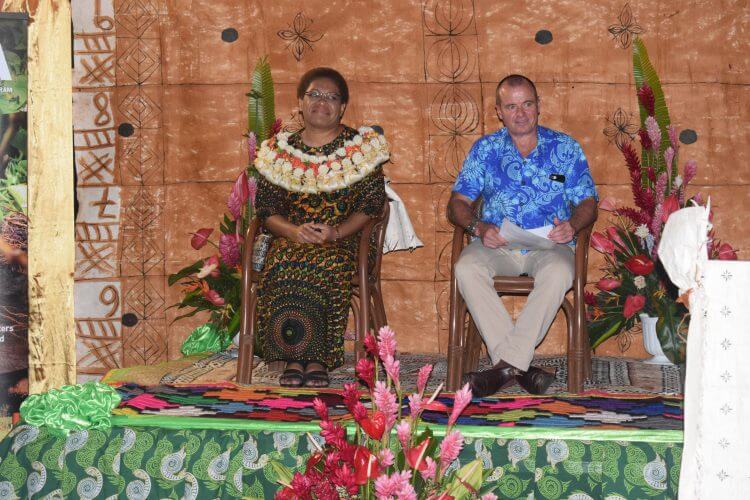Fiji launches kava value chain analysis
Fiji is experiencing a second kava boom fuelled by domestic demand rather than exports. This is among the key findings of the first value chain analysis done of the kava sector.
Acting Minister for Agriculture Mereseini Vuniwaqa today launched the Fiji Kava Value Chain Analysis Report, saying the event marked a special day for stakeholders in the sector.

Australia’s High Commissioner to Fiji, John Feakes and Fiji’s Acting Minister of Agriculture Mereseini Vuniwaqa (centre) in a group photo with kava growers who travelled from across the country to be part of the launch. PS: Samantha Rina
In her opening remarks, Mrs Vuniwaqa said kava was a relatively significant contributor to the national economy. Next to taro exports of $22million for 2017, kava exports for the same period were valued at $19million.
“More than 70% of our rural communities rely on kava for employment and as a consistent source of income. Although kava has been grown in Fiji for centuries, it has only been in the recent past that production statistics have been recorded based on the transition of kava from subsistence to cash crop,” she said.
“The Kava Value Chain Analysis complements our efforts to improve the consistency and reliability of kava production and also to grow exports of quality kava products. With the results of this analysis, we now have a better understanding of how the sector works, and more importantly, we can map a way forward to address the issues raised.”
The analysis is the first comprehensive study carried out for the kava sector and was supported by the Australian and New Zealand-funded Pacific Horticultural and Agricultural Market Access (PHAMA) Program in collaboration with the Ministry of Agriculture.

Fiji’s Acting Minister of Agriculture Mereseini Vuniwaqa and Australia’s High Commissioner to Fiji, John Feakes at the launch of Fiji’s first Kava Value Chain Analysis. PC: Samantha Rina
Speaking at the launch, Australia’s High Commissioner to Fiji, John Feakes said the report would be a useful contribution to discussions about the future of Fiji’s kava sector.
He said the findings and recommendations in the report aligned with Australia’s development policy to support Fiji’s economic growth and improve rural livelihoods through private sector development and trade openness.
“The kava value chain analysis was a result of good technical support under the PHAMA Program, and I am pleased to inform that the tender process is underway for a new PHAMA Program that will continue to support Fiji’s trade and export opportunities for the next four years,” he said.
With the findings and recommendations of the Kava Value Chain Analysis Report, there are now more opportunities for improvements to Fiji’s kava sector.
To access the Kava Value Chain Analysis, click here.
For further information, contact Losalini Leweniqila at l.leweniqila@phama.biz or on +679 9957 593

